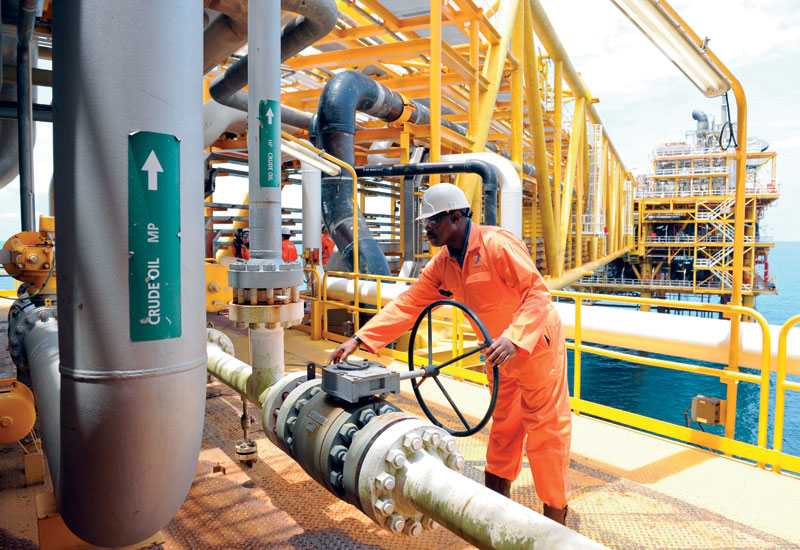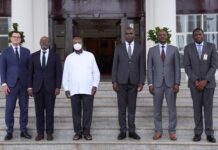By George Tinka
Illicit Financial Flows is money earned illegally, spent and transferred across borders.
Lack of a clear legal framework at the national level and absence of a common regional policy on illicit trade in Uganda leaves a vacuum that is being exploited by investors in the lucrative Oil and Gas industry.
Furthermore, the criminalization of illicit trade is inadequate with some forms of the trade being classified as misdemeanors. Perpetrators therefore opt for minor punishments under the law and are able to get away only with a slap on the wrist and minor fines when apprehended. This is because the balance of risk and reward is not weighed more against the offenders and stand to lose more if they are not involved in the trade than if they are.
According to the Global Financial Integrity report, IFFs were the main driving force behind the net drain of resources from Africa indicating a US$1.2 – 1.3 trillion on an inflation-adjusted basis. IFFs grew at a much faster pace over the 30-year period 1980-2009 than net recorded transfers, even accounting for the net inflows arising from the broad net recorded transfers.
Uganda Revenue Authority-URA commissioner customs, Abel Kagumire tells Spice FM that IFFs continue to plague Uganda’s economy, a loss that the Advocates Coalition for Development and Environment (ACODE) and Global Financial Integrity (GFI) estimate to be in excess of UGX 2 trillion annually.
Amanya Dickens, the Coordinator Bunyoro Albertine Petroleum Network on Environmental Conservation (BAPENECO) says currently local governments and the central government in Uganda are currently relaying on what the international companies are generating in terms of revenue and if it’s not declared, then it means the government remains failing economically.
“When Oil Companies fail to declare their profits and hold the taxes it means Uganda will face problems economically as this has a far-reaching impact in terms of infrastructural development because when you look at what is invested in the oil and gas sector, all this is a recoverable cost hence if we have non declaration of profits by international oil companies, this has a far-reaching effect,’’ says Amanya.
Amanya adds that Uganda should have a policy framework underpinned by embracing the Extractive Industries Transparency Initiative- EITI, combating corruption, promoting institutional mechanisms and deepening poverty reduction strategies.
In 2020, Uganda joined EITI which requires member states to publicly disclose information such as contracts, beneficial owners, revenues and payments, including payments related to the environment. These disclosures can in turn promote public oversight and debate.
Geoffrey Beraheru an economist says Double Taxation Agreements-DTAs that Uganda has so far signed with various countries like Netherlands are a form to tax avoidance of foreigner firms to the disadvantage of poor countries like Uganda. He argues that the oil sector will end up bringing less revenue to the national coffers of Uganda as foreign firms hide under these DTAs which are also abused by the foreign firms.
“The local leadership especially parliament or other bodies are unable to help due to too much secrecy, which increases the risks of illicit financial flows and these can result into money landing in the hands of middle men in the oil sector which has short-term and long-term effects,” says Beraheeru.
He adds that the double taxation agreements end up becoming a “no tax agreement like situation” and this leads to loss of revenue by URA.
Beraheeru is now calling for the renegotiating of the already signed DTAs by the Ugandan government, harmonization of taxation agreements, make the information about such agreements as open and transparent as possible and financial institutions be effectively monitored.
He also argues that there is need to have complete and consistent statistics on policy action to curb IFFs.
Consistent with Goal 16.4 of the 2030 Agenda for Sustainable Development and the financing for development agenda, tackling illicit financial flows (IFFs) has long been a priority of the OECD DAC.12 The DAC has made several contributions to the field, including by measuring OECD Responses to Countering Illicit Financial Flows from Developing Countries (2014) and tracing the efforts of OECD member countries to increase repatriation of stolen assets to countries of origin (2014).
The Ablertine Graben hosts key projects in the oil and gas sector, including Tilenga project in Buliisa and Nwoya districts, with an estimated cost of between $4b and $6b, Kingfisher project in Hoima and Kikuube districts at $2b, Uganda Refinery Project at $4b, and East Africa Crude Oil Pipeline (EACOP) Project at $3.55b.




